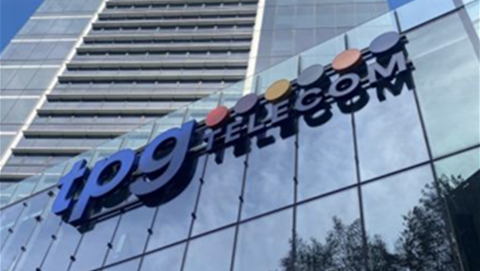The federal government should scrap its so-called “broadband tax” and spend $750 million directly funding NBN Co’s loss-making remote satellite and wireless services, according to a two-year investigation by a unit of the Productivity Commission.
The investigation, by the Australian Government Competitive Neutrality Complaints Office (AGCNCO), was launched in 2020 in response to a complaint from fibre builder Opticomm, which asked the office to look into whether NBN Co’s debt accounting, tax treatment, and regulatory obligations breached the government’s competitive neutrality policies.
The office delivered its report [pdf] today, and mostly rejected Opticomm's complaint.
However, the office found that NBN Co’s is financially advantaged by its government ownership, which provides the company access to cheap debt, on terms that non government-backed telcos could not hope to replicate.
AGCNCO estimated that to be worth around $150 million a year. It said NBN Co should pay that to the government instead of holding onto it.
However, the office said that paying that money to the government could "increase NBN Co’s costs and, in the absence of mitigating circumstances, put upward pressure on wholesale prices."
To counterbalance price increases, the office recommended the government step in to directly fund the loss-making parts of the NBN directly from the federal budget.
"The Australian government could reduce [wholesale price] pressure if it acknowledged that NBN Co’s provision of loss-making fixed-wireless and satellite services qualifies as a community service obligation and it funded those losses directly from the budget (instead of mandating NBN Co fund those losses through an internal cross-subsidy supported by the regional broadband scheme (RBS) levy arrangements)," it wrote.
"Such alternative funding arrangements for those loss-making services would be competitively neutral."
The consequence of this, the office added, would be that internet providers would no longer have to pay towards the cost of maintaining wireless and satellite services, estimated to be $750 million a year.
"Under this... option, carriers would no longer pay an RBS levy, and an equivalent amount to the aggregate levy monies otherwise collected would be paid to NBN Co directly from the budget," the office said.
Asking the government to directly act on wholesale prices comes at a interesting time, with NBN Co, the ACCC, and the industry involved in protracted negotiations over long-term pricing, as part of the special access undertaking (SAU).
The AGCNCO added that while its role isn't "to second-guess how the government might respond to its report and to propose ‘what if’ solutions to address various scenarios", it had chosen to weigh following comments made by other government agencies.
Adverse finding on low-impact rules
The AGCNCO also said a government policy from 2018, the Low-impact Facilities Determination, "is contrary to the objective of competitive neutrality policy".
The commission said the government should review the definition of which providers can take advantage of the determination should be reviewed, "with a view to making the regulatory regime … neutral in its application to NBN Co and its competitors."
NBN Co’s commercial rate of return calculatation needs to be more robust, the report found, and the organisation needs to improve its competitive neutrality reporting, as should its shareholder agencies (the Department of Finance, and the Department of Infrastructure, Transport, Regional Development, Communications and the Arts).
Through a spokesperson, NBN Co told iTnews it will await the government's response to the report.


.png&h=140&w=231&c=1&s=0)
.jpg&h=140&w=231&c=1&s=0)

.jpg&h=140&w=231&c=1&s=0)




















